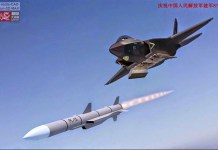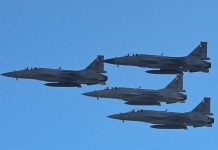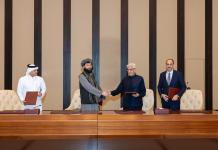US Vice President Mike Pence attacked China’s “opaque” chequebook diplomacy in an aggressive speech, taking aim at Beijing’s business practices and warning trade tariffs would remain in place.
US-China trade tensions are likely to take centre stage at the APEC regional summit, with experts warning the spat could be catastrophic for the global economy, as the world’s top two powers go head to head.
In a wide-ranging swipe at Beijing that covered everything from China’s massive “Belt and Road” infrastructure initiative to allegations of unfair trade practices, Pence encouraged Pacific nations to embrace the United States.
Washington’s diplomacy wouldn’t involve a “constricting belt or a one-way road”, he pointedly told CEOs from around the region.
He also put China on notice that it would need to make concessions in the confrontation over trade. “We’ve put tariffs on USD 250 billion in Chinese goods and that number could more than double,” he said. “We hope for better, but the United States will not change course until China changes its ways”.
Pence’s comments came after Chinese President Xi Jinping told the same forum that protectionist actions were short-sighted and doomed to fail, stressing that there would be no winners from a trade war or a new cold war.
“Attempts to erect barriers and cut close economic ties work against the laws of economics and the trends of history. This is a short-sighted approach and it is doomed to failure,” Xi told business leaders on the sidelines of the summit.
“We should say no to protectionism and unilateralism,” Xi said, in a veiled attack on the “America First” policies of Donald Trump’s administration.
APEC members the US and China have imposed tariffs worth billions of dollars of each other’s goods and there is little sign of an immediate easing in tensions, with both sides threatening to step up action if necessary.
With concerns growing that rivalry between the US and China could escalate, Xi warned against going down that road. “History has shown that confrontation — whether in the form of a cold war, hot war or trade war — will produce no winners,” he said.




